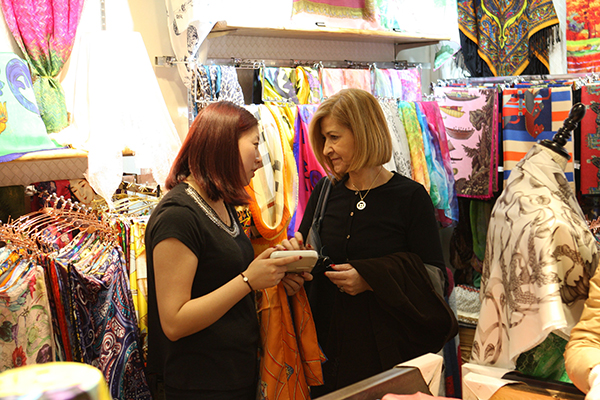 |
|
A foreign tourist bargains for a deal at a market in Beijing. Inbound visitors are able to claim tax refunds on purchases made in China at designated stores, but purchases from private vendors are not eligible. [Photo/China Daily] |
Tourists from foreign countries and those from Hong Kong, Macao and Taiwan who have lived on the Chinese mainland for no more than 183 days will be eligible for a rebate of 11 percent on consumer goods bought at designated department stores.
The minimum purchase to qualify for a tax refund is 500 yuan ($80.6) at any one store in a day.
A pilot tax refund program was launched in Hainan province on Jan 1, 2011. The new policy announcement increases the number of products that are eligible for refunds and the purchasing sites.
According to the implementation rules released by the State Administration of Taxation, stores can become "designated tax-refund stores" as long as they meet several criteria and are registered at the SAT. The criteria include possessing the eligibility conditions for value-added tax, taxpayer credit and the willingness to adopt the electronic VAT invoice system.
The nationwide, registration-based qualification system beats previous expectations, in which analysts expected only a few major cities to apply for the qualification, underscoring the authority's eagerness to bolster onshore consumption.
According to experts and expatriates, the biggest problem the policy faces is that most foreign tourists, unlike their Chinese counterparts visiting overseas destinations, do not come to China to buy well-known brands.
Wendy Fung, a 28-year-old woman from the United States, who has lived in China for more than five years, said most first-time tourists to the country tend to buy Chinese-inspired souvenirs or Chinese antiques, for example porcelain tea sets, intricately painted fans, or panda hats and T-shirts.
"It would be great if these souvenirs or antiques can be included in the designated shops," she said.
Fung said that many international visitors, regardless of the number of times they have been to China, are bargain-hunters.
They want to buy Chinese-made clothing or accessories from vendors' stalls at flea markets where they can get good deals, which are unlikely at the designated stores, she said.
"Visitors also go for unbranded products. Are there any well-known brands-Chinese or foreign-that are being sold for cheaper in China than elsewhere in the world?" she said.
